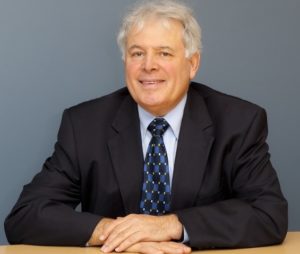
A Commonwealth ICAC would be expensive, inefficient, divisive – and hardly any of the world’s least corrupt nations have a national anti-corruption agency.
That’s according to a leading anti-corruption expert, who says most of the existing State ICACS are struggling with direction and that Australia should instead opt for an Independent Anti-Corruption Council to address its slump in world corruption rankings.
Flinders University’s Professor Adam Graycar, who has addressed organisations including the UN on corruption, will tell the audience at a ‘Professionals’ lecture hosted by Flinders’ Faculty of Social and Behavioural Sciences in Adelaide today that a Council reporting to an all-party Parliamentary Committee is the best answer to Australia’s corruption issues.
“An Australian Council would work independently, feel the pulse, and refer cases for investigation to appropriate authorities such as the Australian Federal Police, the Public Service Commissioner, the Australian Taxation Office, the Ombudsman, and these in turn would take matters to the Director of Public Prosecutions, as appropriate,” says Professor Graycar.
“This would be expressly a body for discussion and cooperation, and not for the investigation and consideration of individual cases.
“Several examples of such bodies exist around the world. In Finland, for example there is a cooperative network, which brings together representative of the key governmental agencies (for example police, justice, taxation, social welfare, and commerce) but also the business sector, non-governmental organizations and research.
Professor Graycar argues that the Council could:
- Increase awareness of corruption in society and promote awareness of anti-corruption guidelines in State and local government as well as in the private sector
- Monitor how Australia adheres to international conventions and agreements
- Devise public information on corruption prevention, and in particular chart potential weaknesses and vulnerabilities in different sectors to corruption, and outline countermeasures
“There would be no separate agency or organisation to do this, but a network that would meet a few times per year, and be supported by a (very) small secretariat. It would draw on stakeholder support and academic and NGO research for its evidence base,” he says.
Professor Graycar, whose speech today will also look at corruption in sport, says every incident of corruption causes harm.
“Government is about the creation of public value. When there is corruption, public value is trashed,” he says.
“One of the greatest threats to integrity is denial of responsibility and denial of accountability, as well as silence – but we can’t look the other way,” he says.
“When Julia Gillard established the Royal Commission into Institutional Responses to Child Sexual Abuse she accused pillars of the establishment of ‘averting their gaze’, and Australian of the year David Morrison told his Army colleagues ‘the standard you walk past is the standard you accept’.
“We all occasionally accept things we shouldn’t, and we do avert our gaze from time to time – but we know not to.”
Find more information about Professor Graycar’s Professionals’ lecture here.

